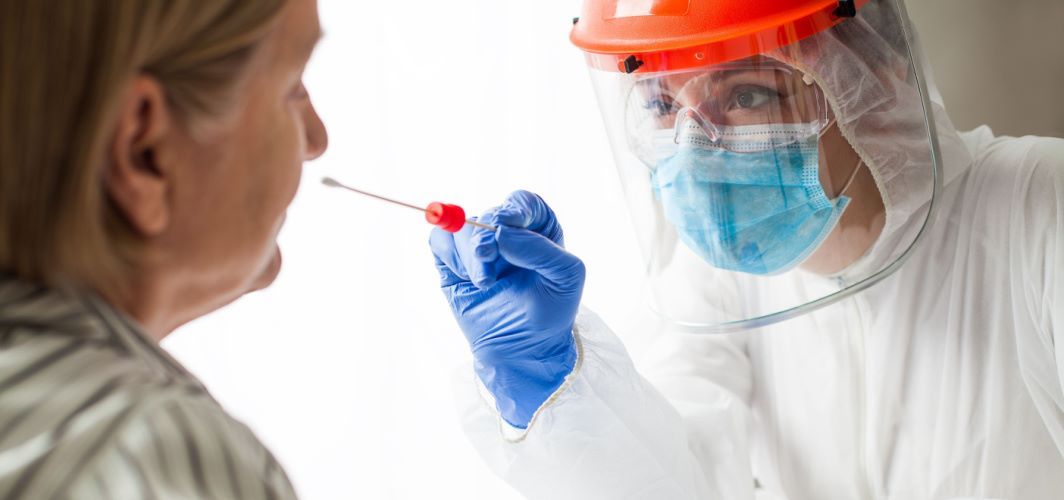Coronavirus Updates
How to Stay Mentally Fit During the Lockdown
5 min read
By Apollo 24/7, Published on - 02 June 2020, Updated on - 18 October 2022
Share this article
0
1 like

Coronavirus has significantly changed the way we live. Social distancing, wearing masks, and frequent hand washing has become the new normal. These are all measures to stop the spread of the Coronavirus. Another measure that has been adopted by many countries, including India, is ‘lockdown’. Lockdown restricts the movement of citizens; this means that most of us are confined to our homes. While we are staying indoors, our new routine may include working from home, home-schooling of children, temporary loss of employment, etc.
These changes in our lifestyle, combined with the anxiety of contracting COVID-19 can affect our mental health and wellbeing. The common signs of stress are changes in either sleeping or eating patterns, difficulty in concentration, worsening of chronic health conditions, and increased intake of alcohol, tobacco, and drugs.
Hence, the World Health Organization (WHO) has recommended some tips to deal with mental stress during this pandemic. We have outlined them for you below:
1. Maintain a routine:
Make a routine and ensure that you follow it religiously. Some of the things to include in your routine are as follows:
- Wake up and sleep at the same time daily
- Set aside a fixed time for working and resting
- Eat at regular times; try avoiding junk food. It is better to eat food items that are beneficial to your health
- Practise personal hygiene like regular bathing and frequent washing of hands
- Exercise daily for good physical and mental health
- Spend time doing things that you enjoy like reading, listening to music, etc.
- Take deep breaths, stretch regularly, and meditate.
2. Try limiting your screen time:
- Keep a track of the amount of time you spend in front of a screen, be it of a computer, laptop, or mobile. Ensure that you stay away from on-screen activities at frequent intervals
3. Keep social contact:
- Since most of our time are spent indoors, it is important to keep in touch with close friends and family through phone and social media
4. Limit/avoid alcohol and tobacco use:
Do not drink alcohol at all but if you do, reduce the quantity you drink. Refrain from using tobacco and alcohol to deal with boredom, anxiety, fear, and social isolation. Use of tobacco and alcohol may increase your risk of infection and prevent you from taking precautions such as washing your hands, practicing social distancing, etc.
5. Use social media judiciously:
Promote positivity and stories of hope while using your social media accounts. If you see any misinformation being circulated on social media, make it right by sharing the correct information.
6. Help others:
This is a difficult time for everyone, particularly for people who are either at higher risk of COVID-19 or are dependent on caregivers. One example is of elderly people whose chances of severe illness due to Coronavirus may be higher. We can help such individuals by doing chores like buying groceries, medicines, booking a taxi, etc.
7. Reduce the time spent on the news:
Try to minimise the time you spend on either watching or reading news that makes you anxious or distressed. While it is important to keep yourselves updated, it should not hamper your mental wellbeing. Hence, you should schedule specific times to read and watch the news.
8. Do not discriminate against others:
In times of uncertainty like the current COVID-19 pandemic, fear is a normal reaction. However, sometimes we may tend to express fear in a way which can hurt other people. Hence, we should be kind and should avoid any discrimination towards health workers and people suspected to have Coronavirus infection. Also, remember that people from many countries have been affected by COVID-19. Do not associate the virus with any specific group and do not discriminate against them.
9. Stay updated with information:
Keeping yourself updated with the latest information on the Coronavirus is the key to our fight against it. Follow the recommendations and advice given by your local and national authorities. Also, ensure that you refer to credible sources for the latest updates on COVID-19.
How can parents ensure the mental wellbeing of their children during lockdown?
Children are likely to demand increased attention during the lockdown. Here is what you can do to ensure their mental wellbeing:
- Create a new routine for your children or let them stick to the previous ones
- Set aside some time for them to play and engage them in physical games
- Explain the effects of Coronavirus to your children in ways that they can understand
- Let your children stay in touch with friends and family members either through a cell phone or any online channel
- Do something creative with your children like building something, drawing a picture, writing a poem, etc.
- Limit the time your children spend playing video games.
How can the elderly care for their mental health during lockdown?
It is common for elder citizens to feel anxious about getting infected with the Coronavirus as they fall under the high-risk category. If you are an elder citizen, here is how you can take care of your mental health:
- Make a fixed routine for eating, sleeping, and doing things that you enjoy
- Keep in contact with your loved ones through video conference, telephone, social media, etc.
- Do simple and light physical exercises every day to retain mobility
- Ensure that you have at least one-month worth of supply of your regular medicines
- Find ways to get practical help for things like food delivery, booking a taxi, or getting medical care
- Talk to your doctor about your chronic health condition, if any, and understand how you can manage it during COVID-19.
Conclusion
There is a lot of uncertainty around the Coronavirus which may cause anxiety, fear, and worry in many of us. However, we can follow the above-given recommendations to safeguard our mental as well as physical wellbeing during COVID-19. If you still feel overwhelmed with anxiety, fear, or sadness, seek medical attention immediately. Doctors can help you address your concerns, ease your fears, and prescribe treatment if needed. In the meantime, let us hope that either a treatment for COVID-19 or a vaccine for Coronavirus prevention is discovered soon
Coronavirus Updates
Leave Comment
Recommended for you

Coronavirus Updates
Does Coronavirus Spread Through Food and Water?
Transmission of Coronavirus through food, food packages, and water as per research data appears to be less likely.

Coronavirus Updates
Is It Safe to Go Swimming at a Pool or Visit the Beach Once the Coronavirus Lockdown Ends?
There is no evidence so far to prove the spread of Coronavirus in water. Hence, you can go swimming at a pool or visit a beach by following some precautions.

Coronavirus Updates
How To Read An RT-PCR Test Report?
Understanding your RT-PCR test report accurately is essential for comprehending your COVID-19 infection status. This comprehensive guide explains the components of the report, decoding the test results, and acquainting you with associated terminologies for better interpretation.
Subscribe
Sign up for our free Health Library Daily Newsletter
Get doctor-approved health tips, news, and more.
Visual Stories

COVID-19: The situation on ground [6th July 2021]
Tap to continue exploring
Recommended for you

Coronavirus Updates
Does Coronavirus Spread Through Food and Water?
Transmission of Coronavirus through food, food packages, and water as per research data appears to be less likely.

Coronavirus Updates
Is It Safe to Go Swimming at a Pool or Visit the Beach Once the Coronavirus Lockdown Ends?
There is no evidence so far to prove the spread of Coronavirus in water. Hence, you can go swimming at a pool or visit a beach by following some precautions.

Coronavirus Updates
How To Read An RT-PCR Test Report?
Understanding your RT-PCR test report accurately is essential for comprehending your COVID-19 infection status. This comprehensive guide explains the components of the report, decoding the test results, and acquainting you with associated terminologies for better interpretation.